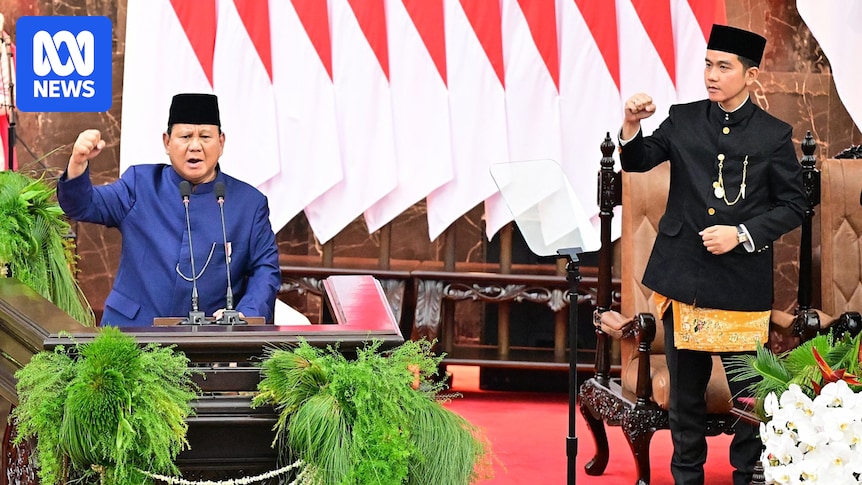
Indonesian President Prabowo Subianto has marked his first year in office, a milestone that comes amid significant controversy and public unrest. Prabowo’s election victory last year was accompanied by a dramatic rebranding effort that saw him transform from a former military figure into a more approachable persona, engaging with younger voters through social media antics and a softer public image. This strategy proved successful, culminating in his long-sought presidential victory after nearly two decades of attempts.
However, the anniversary of his presidency is overshadowed by the detention of hundreds of protesters, activists, and students following nationwide protests in August. These events have revived memories of Prabowo’s controversial past for many older Indonesians, recalling his alleged involvement in human rights abuses during his military career, which he has consistently denied.
Protests and Arrests: A Year of Unrest
The protests, initially sparked by reports of excessive parliamentary perks, quickly escalated following the death of rideshare driver Affan Kurniawan during an anti-government rally. The demonstrations evolved into a broader movement demanding systemic reforms in policing, democracy, and the economy. Tragically, at least 10 people lost their lives during these protests, including students involved in clashes with police.
In response, Indonesian authorities have launched a significant crackdown. According to Police Criminal Investigation Agency chief commissioner general Syahardiantono, 959 people have been charged with various offenses, with 295 of them being students or young individuals. Although some have been released, around 600 protesters remain detained across the country, raising concerns among civil society organizations.
Personal Stories: Families in Distress
Among those detained is Ahmad Faiz Yusuf, a student and literacy activist from East Java. His mother, Imro’atin, recounts the day when police officers entered her home, searching for Faiz and confiscating his belongings. Faiz was charged under the Information and Electronic Transaction Law for allegedly spreading false information, a charge his mother disputes, asserting her son’s innocence.
Similarly, Delpedro Marhaen, a young activist and executive director of the Lokataru Foundation, has been held in Jakarta on suspicion of inciting violence. His family and the foundation deny these claims, with Delpedro’s brother emphasizing the broader implications of such arrests on civil liberties and the future of young activists in Indonesia.
Historical Parallels: Echoes of the Past
The current wave of arrests has drawn comparisons to Indonesia’s New Order era under former president Suharto, who was ousted following student-led protests in 1998. Prabowo, once Suharto’s son-in-law and a military commander during that time, is alleged to have been involved in the forced disappearance of activists.
Andrie Yunus, external affairs coordinator at KontraS, a leading human rights organization, notes the unsettling similarities between the current situation and the New Order era. He highlights the ongoing human rights violations and unresolved cases of enforced disappearances that continue to haunt the nation.
“Human rights violations continue to happen and repeat, and what makes it feel like we’re back in that dark tunnel is that KontraS is still assisting victims of the 1998 riots … cases of forced disappearances that remain unresolved.” – Andrie Yunus
Youth Discontent and Economic Challenges
Amid these political tensions, dissatisfaction among Indonesia’s youth is growing. Many young voters who supported Prabowo are now disillusioned, particularly due to unmet economic promises. The Centre of Economic and Law Studies (CELIOS) reports that 16% of young people in Indonesia are unemployed, with many turning to the gig economy due to a lack of formal employment opportunities.
Rey, a student at Universitas Indonesia, voices the frustrations of many of his peers, criticizing government policies and the lack of job creation. This sentiment is echoed by Bhima Yudhistira Adhinegara, executive director of CELIOS, who highlights the gap between campaign promises and the current economic reality.
“Finding a job is very difficult right now; many fresh graduates are turning to the gig economy because they can’t find employment in the formal sector.” – Bhima Yudhistira Adhinegara
Flagship Program Under Fire
Adding to the administration’s challenges, Prabowo’s flagship free school meals program has come under scrutiny following reports of widespread food poisoning among children. Despite the president’s defense of the program, NGOs are calling for a moratorium while food safety issues are addressed.
Ririn Sefsani from Mother’s Voice Indonesia criticizes Prabowo’s response, arguing that it reflects a lack of empathy and human rights perspective. As public pressure mounts, families of detained students, like Ms Imro’atin and Ms Prihatini, are calling for the release of their children, emphasizing the risk of educational disruption and the broader implications for Indonesia’s future generations.
As President Prabowo navigates these complex challenges, the coming months will be crucial in determining the trajectory of his administration and its ability to address the grievances of a restless populace.





